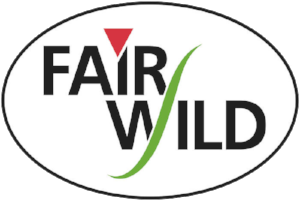FairWild in the limelight at world’s largest organic trade fair
February 2015, Nuremberg, Germany—More than 44,000 trade visitors from 136 countries travelled to Nuremberg, where FairWild was one of more than 2,000 exhibitors presenting their sustainability products and services at Biofach, the annual get-together for the organic trade industry.
At the FairWild Foundation’s stand alongside the certification body, IMO SwissAG, Biofach participants learned all about the FairWild Standard, a best-practice framework for sustainable wild-collection and fair trade in wild plant ingredients.
A FairWild side-event on Building sustainable sources of wild-collected raw materials: the FairWild approach was well-attended, with more than 65 participants sharing ideas on wild-sourcing and implementation of the FairWild Standard on the ground.
Robbie Hogervorst from ProFound Advisors in Development, one of the FairWild Foundation’s partners spoke about the rising demand for food, health and cosmetics products and the need for buyers to secure access to strategic resources. World-wide, the volume of wild-sourced plant ingredients available to buyers is diminishing due to over-exploitation of wild resources and fading interest in the trade among collectors. He spoke of the benefits of adopting the FairWild Standard as a means of addressing these key issues.
“Establishing sustainable wild collection in practice means focusing on both the wild-resources and the communities who collect them,” said Bryony Morgan, FairWild Foundation’s Executive Officer.
“Taking these steps is of vital importance to increase the availability of sustainable raw material, both in terms of volumes, species and origins.”
Matt Richards, Production and Standards Coordinator of the Organic Herb Trading Company (OHTC) spoke about the experiences of the FairWild implementation, in line with the overall company’s values on building relationships, transparency of trade and commitment to long-term goals. OHTC is involved in a number of projects supporting the sourcing of FairWild ingredients, including from Bulgaria and Hungary. Over time, their support has helped improve collection practices and the quality of the products. OHTC also pays the FairWild premium prices to producers and contributes to the FairWild premium fund. At the other end of supply chain, OHTC became the first UK trader of FairWild certified ingredients. “OHTC is happy to share some lessons about working with suppliers and creating a sustainable supply base for the benefit of the wider FairWild community”, he said.
From China, TRAFFIC’s Chenyang Li spoke about a project supported by the European Commission supporting implementation of the FairWild Standard through traditional Chinese medicine (TCM) manufacturers and traders in Zhejiang and Hunan provinces.
“TRAFFIC’s work in implementing the FairWild Standard in China started from supporting the wild-collecting communities in Giant Panda habitat together with WWF and other partners, including sustainable harvesting trainings, support to diversification of incomes, linkages to international trading partners”, said Chenyang Li. “Our aim in current project is to transform the way the TCM industry in China approaches wild plants sourcing”
“The message of FairWild is simple: it is about sustainable wild collection and fair trade,” said Mike Brooks, founder of OHTC. “If it is communicated well, it is not difficult to explain”.
Other hot topics under discussion at BioFach included revisions to the European Union’s (EU) organic regulations, the future of the organic movement, and the free trade agreement between the EU and the USA.
FairWild Foundation’s presence at BioFach was supported by the Friends of FairWild donations. The engagement of TRAFFIC - a partner of the FairWild Foundation - was supported through the European Union-China Environmental Governance Programme. FairWild Foundation co-exhibited at the BioFach 2015 with IMO SwissAG, part of Ecocert group.
